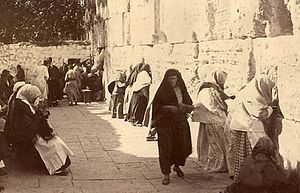
At the beginning of Numbers chapter 12 we have a famous story. Aaron and Miriam gossip about Moses. God calls all three – Moses, Aaron and Miriam – to the Tent of Meeting and makes it clear that Aaron and Miriam are out of line. When the Presence of God departs, they see that Miriam is covered with scales. She has been stricken with tzara’at disease: her skin has turned white and is flaking everywhere. As such she must be banished to live outside the camp until the disease clears, if it clears.
Aaron is overcome with guilt and speaks to Moses as if his brother were God himself: “Master, please do not hold this sin against us: we were foolish, and we sinned. Let her not be left like this!” Moses turns to God, and voices a simple prayer, El na rafah na la – “Please, God, please heal her.” God answers that she will have the tzara’at for seven days and may then return to camp.
Often when we tell this story we focus on the part where Moses prays and God responds to the prayer. Many of us pray this same prayer for our loved ones who are sick. Indeed, it is part of Jewish tradition to pray for the sick.
However, the story as written is not a story about miraculous cures. Aaron, who has seen Moses “work miracles” many times, turns to Moses for magic: “Please, Master, let her not be left like this!” Moses does not stop to argue with Aaron about magic or miracles. He turns away from Aaron, to God, and prays for his sister, “Please, God, please heal her.”
God’s answer is not the answer either brother wants. Miriam will not be healed immediately; her illness will run its course. What God gives them is some relief from uncertainty: eventually she will be able to return to the camp.
When we pray for healing for our loved ones, we may feel like Aaron, panicked and wishing for a magic cure. Or we may be like Moses, hoping for God to work a miracle. Usually, though, as with Moses, our prayers are not answered with miracles. Disease runs its normal course and chronic illness is chronic. The refuah shleimah (“complete healing”) we pray for is perhaps more properly translated “a restoration to wholeness.” Prayers for the sick are not magic. What they can do is turn our hearts to the sick people in our community so that they are not stuck indefinitely “outside the camp,” isolated and ill. Sometimes a refuah shleimah means a cure, and sometimes it means something more subtle but no less miraculous: an arrival at a place of peace with circumstance and life.
May all those who are suffering in body or spirit find a true healing, a state of wholeness, and may we all reach out to them with love and shalom.

Hi CSR: I’m currently at work on the Mi Shebeirach blessing for my book and appreciated your comments here. Though I know the ritual mechanics behind the prayer (why say it and when, etc), I’ve two questions for you: I was wondering whether any visuals occur to you during your recitation of the prayer? Also, would you extend the benefits of this prayer to the larger goal of tikkun olam?